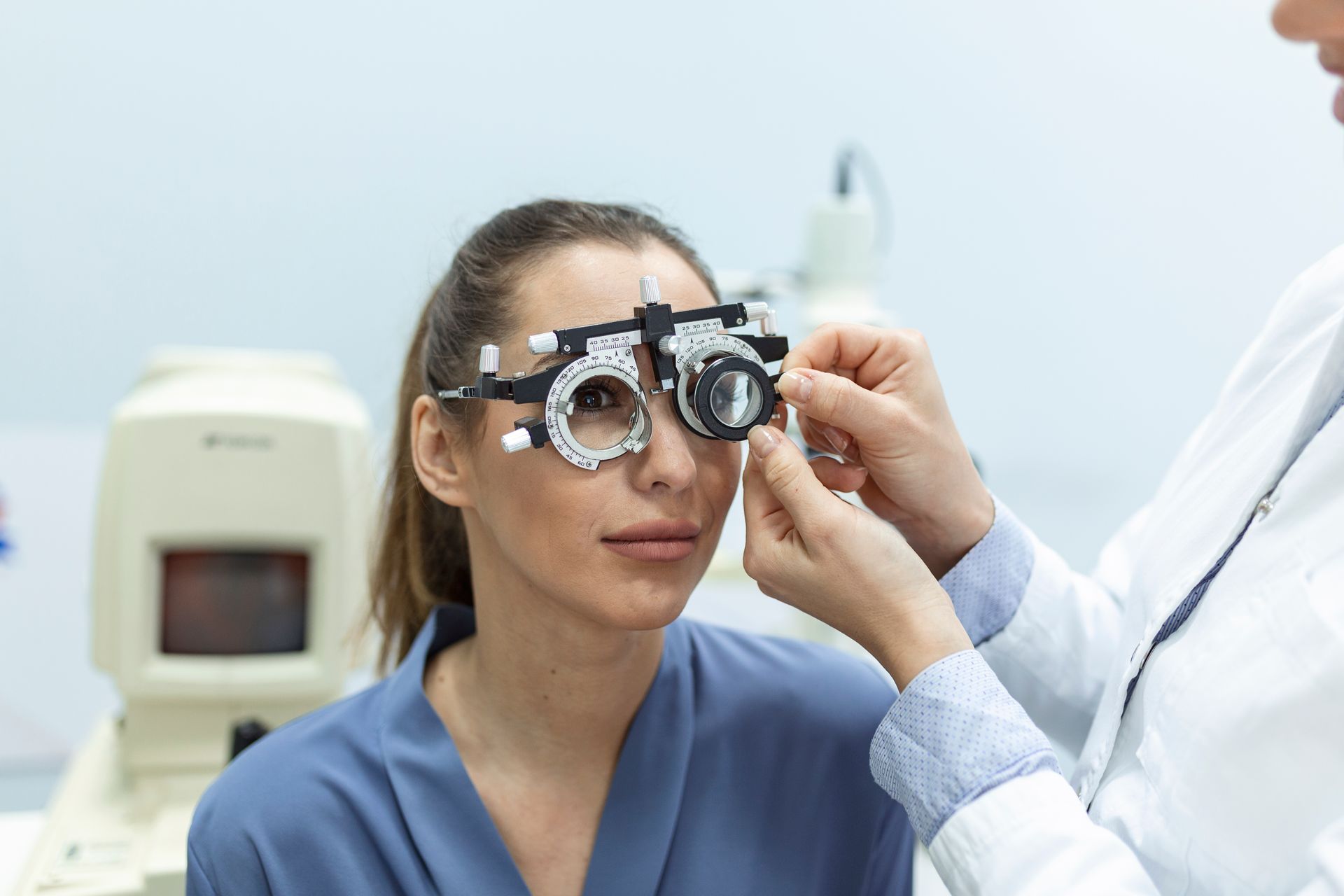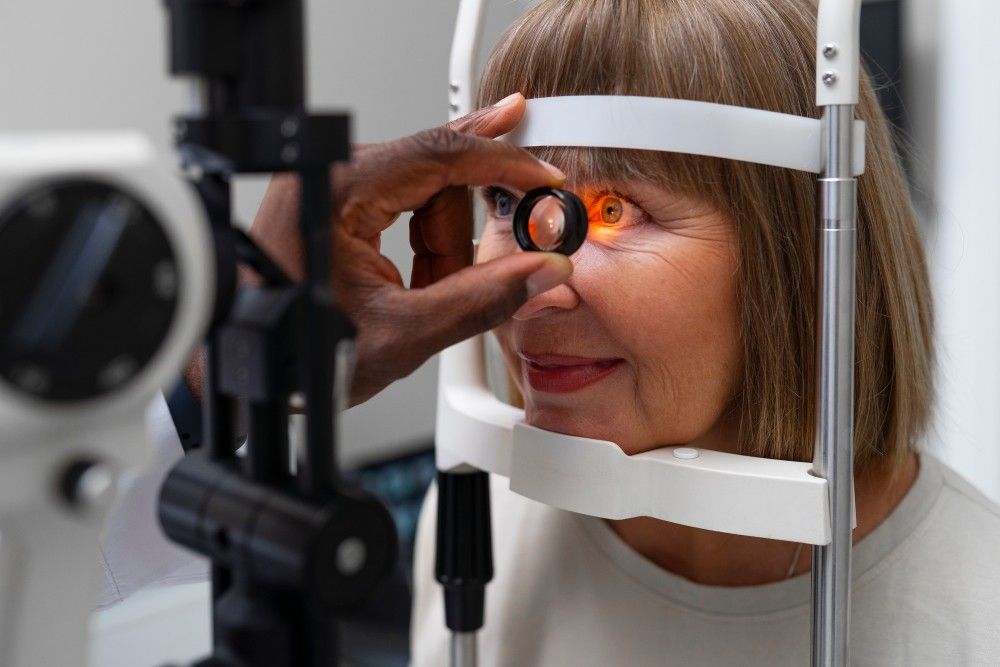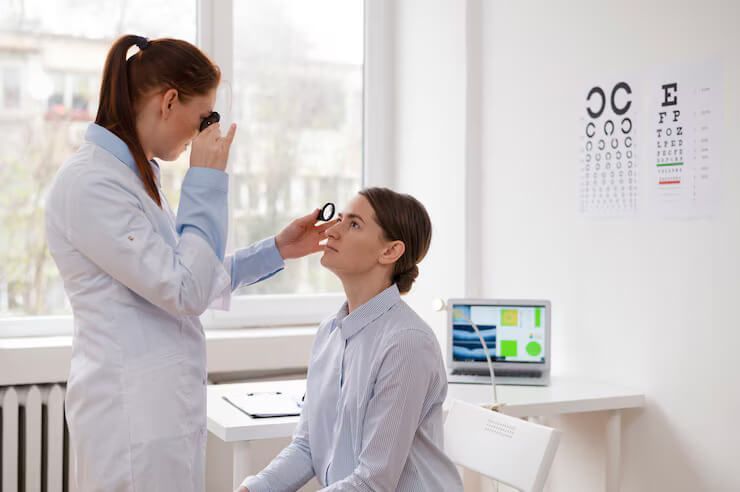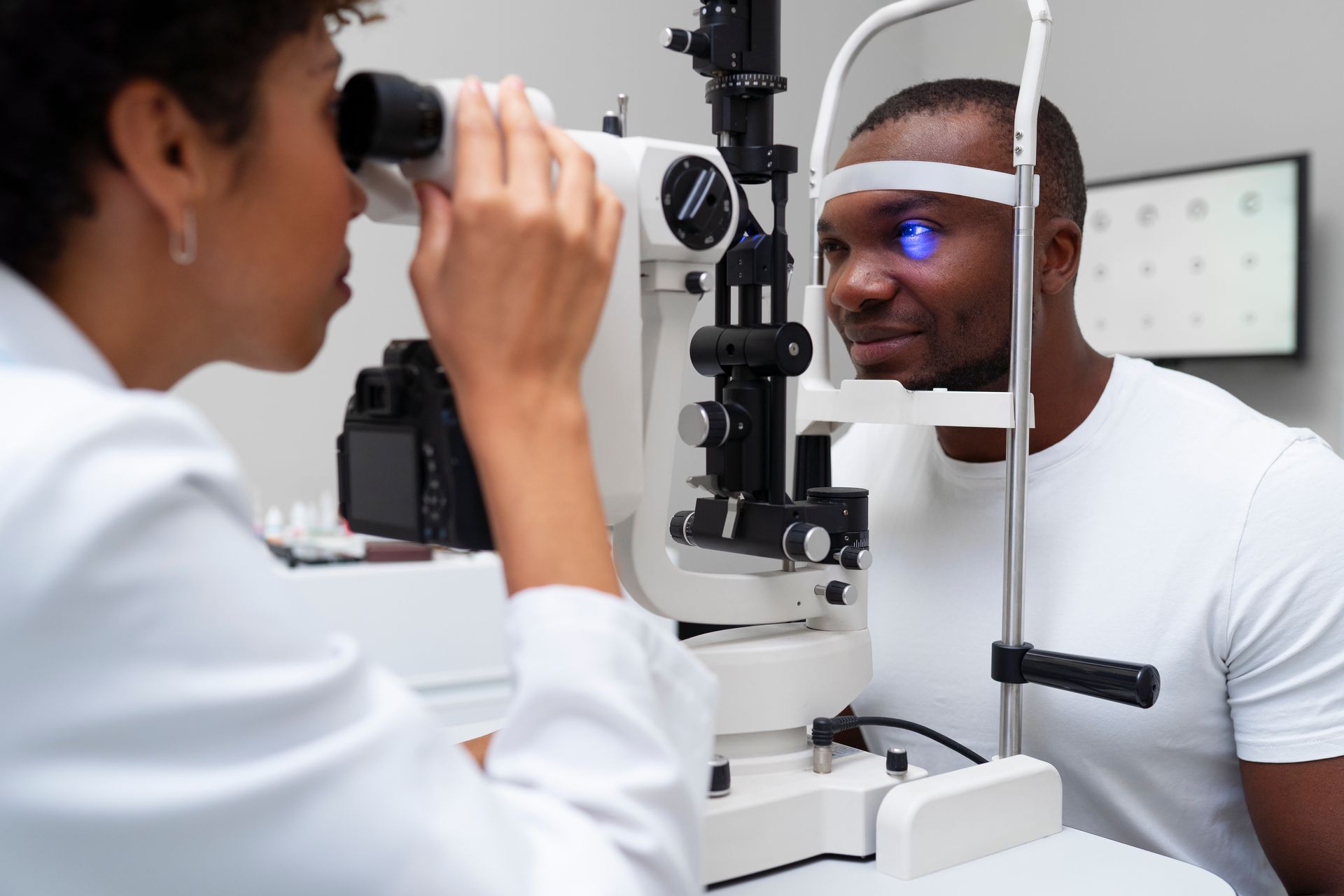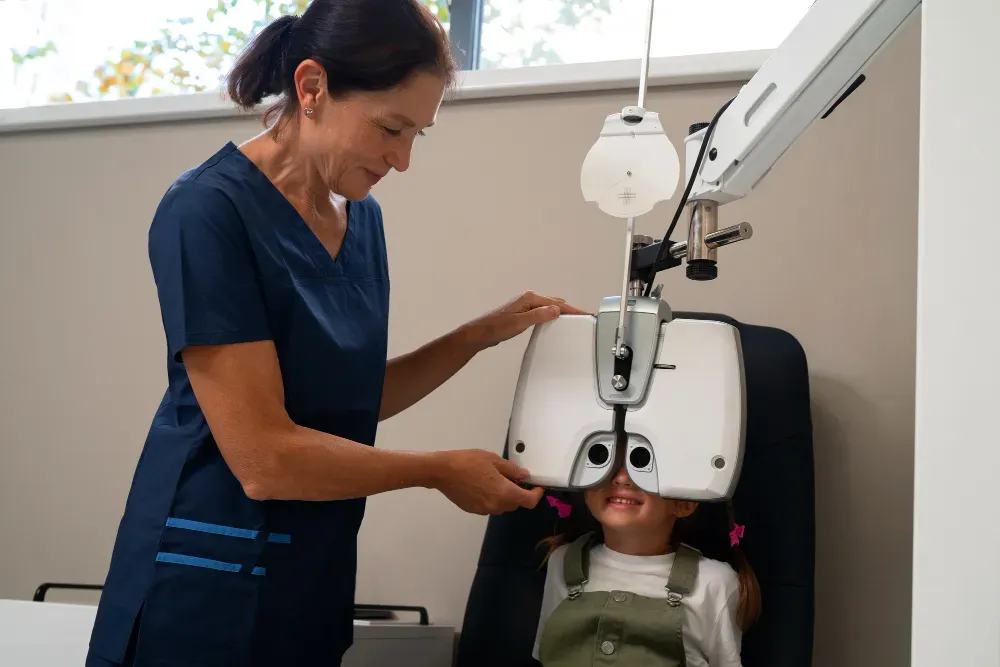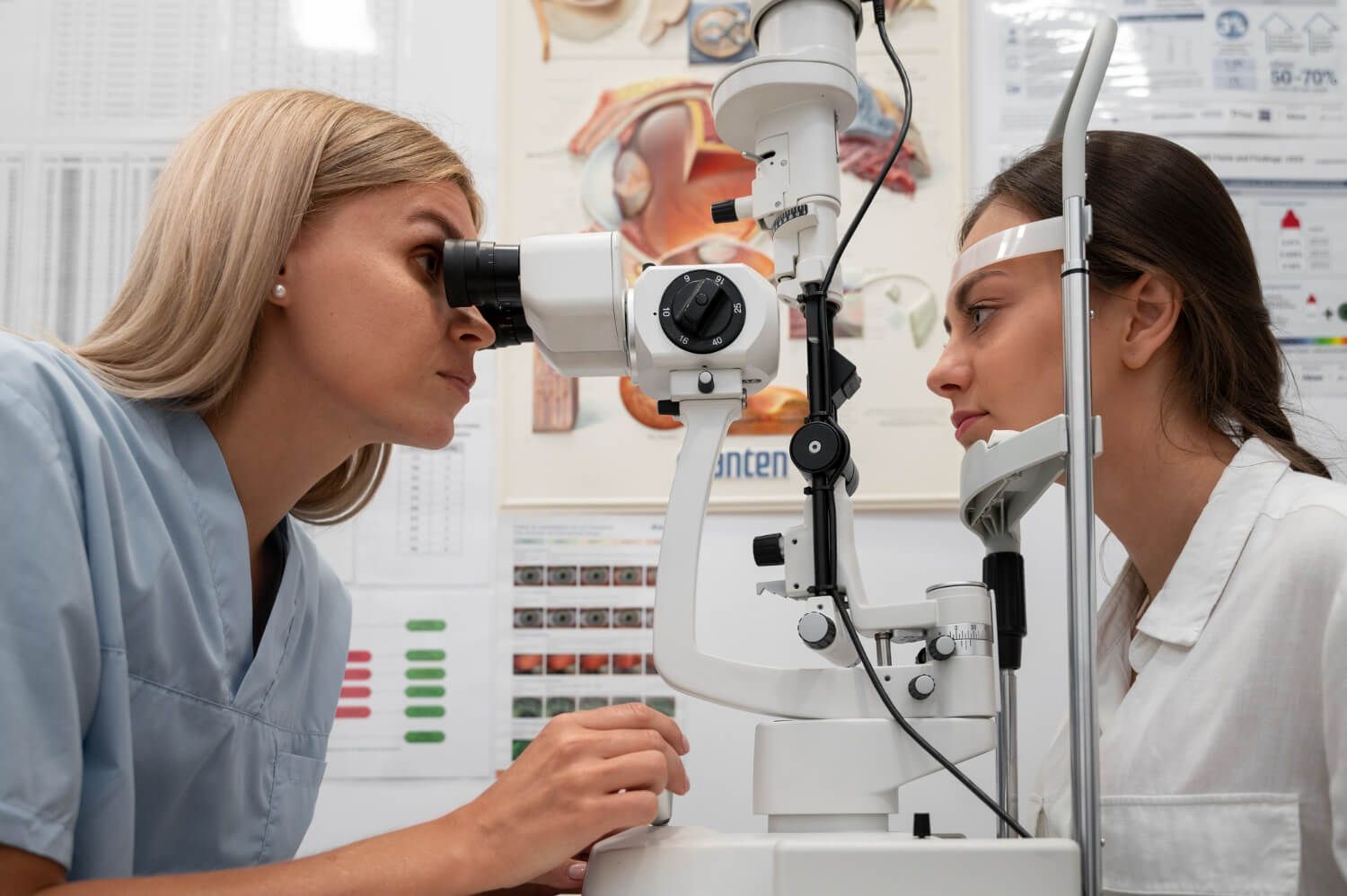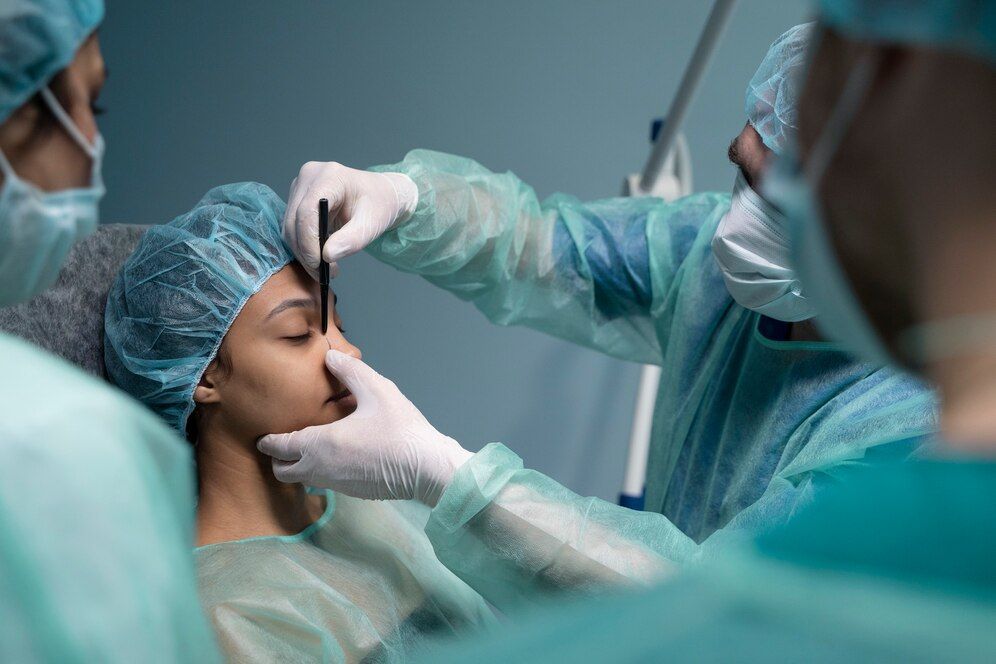Stay Hydrated, Keep Your Eyes Refreshed: Summer Tips for Dry Eye Relief
As the summer season arrives, many of us look forward to enjoying outdoor activities and soaking up the sunshine. However, the summer heat and dry climate can take a toll on our eyes, leading to uncomfortable symptoms of dryness and irritation. At Hill Country Eye Center, we understand the importance of maintaining optimal eye health all year round. In this blog post, we will explore effective tips for keeping your eyes refreshed and alleviating dry eye symptoms during the summer months.

Drink Plenty of Water:
Staying hydrated is crucial for overall health, including your eyes. Dehydration can exacerbate dry eye symptoms, so make it a priority to drink an adequate amount of water throughout the day. Carry a water bottle with you and sip on water regularly, especially when spending time outdoors or participating in physical activities.
Use Artificial Tears or Lubricating Eye Drops:
Artificial tears or lubricating eye drops can provide instant relief for dry eyes. These over-the-counter solutions help to moisten the eyes and reduce irritation. Keep a bottle of artificial tears handy, especially when spending extended periods in air-conditioned environments or engaging in outdoor activities.
Blink Regularly and Take Visual Breaks:
Extended periods of screen time, whether from laptops, smartphones, or other digital devices, can contribute to dry eye symptoms. Remember to blink regularly while using these devices to keep your eyes moist. Additionally, practice the 20-20-20 rule: Every 20 minutes, take a 20-second break to look at something 20 feet away. This helps reduce eye strain and keeps your eyes refreshed.
Wear Sunglasses for UV Protection:
When spending time outdoors, protect your eyes from harmful UV rays by wearing sunglasses. Look for sunglasses that block 100% of UVA and UVB rays. Additionally, consider sunglasses with wrap-around frames or those labeled as "UV 400" for maximum coverage. By shielding your eyes from the sun, you can help prevent dryness and protect your vision.
Use Humidifiers or Fans:
Dry indoor environments, particularly when using air conditioning, can contribute to dry eye symptoms. Consider using a humidifier to add moisture to the air in your home or office. If a humidifier is not available, using fans strategically can help improve air circulation and prevent excessive evaporation of tears.
Consult with an Eye Care Specialist:
If you are experiencing persistent dry eye symptoms or have concerns about your eye health, it is essential to consult with an eye care specialist. They can assess your condition, provide a personalized treatment plan, and offer guidance specific to your needs. At Hill Country Eye Center, our experienced team is dedicated to helping you find relief from dry eye and maintaining optimal eye health.
Embrace a Summer of Refreshed Eyes with Hill Country Eye Center
This summer, don't let dry eye symptoms dampen your enjoyment of the season. By following these tips and incorporating them into your daily routine, you can keep your eyes refreshed, comfortable, and healthy. Remember to stay hydrated, use artificial tears when needed, protect your eyes with sunglasses, and take regular breaks from digital devices. If you require further assistance or have concerns about dry eye, reach out to the trusted Austin eye experts at Hill Country Eye Center. Let's make this summer a season of clear, comfortable vision and refreshed eyes.
